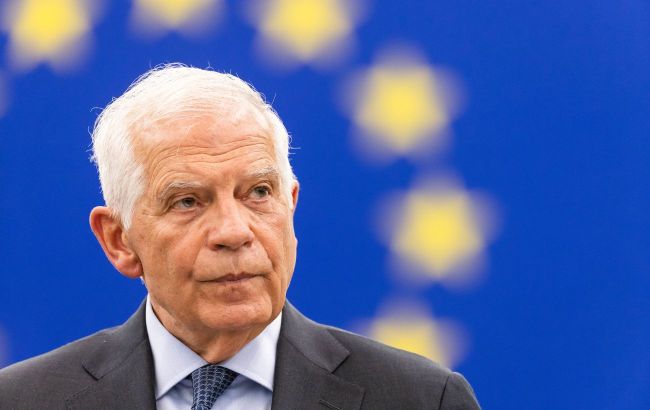EU develops peace plan to resolve Israeli-Palestinian conflict
 EU foreign policy chief Josep Borrell (photo: Getty Images)
EU foreign policy chief Josep Borrell (photo: Getty Images)
The European Union has developed a 10-point plan for a lasting, comprehensive solution to the Israeli-Palestinian conflict, reports Euractiv.
"In view of the current situation and despite the evident difficulties and uncertainties, the time to prepare for (a) comprehensive Israeli-Palestinian peace is now," reads the introduction to the draft document, which Euractiv has seen.
The effort is aimed at getting EU foreign ministers to discuss the situation in the Gaza Strip and its wider implications for the region with some of the key stakeholders in the region on Monday, January 22.
The document sets out a series of steps that could ultimately lead to peace in the Gaza Strip, the establishment of an independent Palestinian state, normalization of relations between Israel and the Arab world, and long-term security in the region, according to a non-paper prepared by the EU's diplomatic service (EEAS).
10-point roadmap
The future peace process should lead to the creation of an independent Palestinian state that will "live side by side" with Israel and "full normalization" of relations between Israel and the Arab world, the plan says.
"It is unrealistic to assume that Israelis and Palestinians (the latter represented by the PLO and the PA), will in the near future directly engage in bilateral peace negotiations to achieve comprehensive peace, let alone conclude such negotiations, without strong international involvement," the document says.
It is emphasized that the Palestinians will need a revived political alternative to Hamas, and the Israelis will need the political will to participate in meaningful negotiations to resolve the two-state problem.
A key element of the EU's future peace "roadmap" is the "Preparatory Peace Conference" involving the EU, the U.S., Egypt, Jordan, Saudi Arabia, the Arab League and the UN.
Its participants will be in constant contact with Israeli and Palestinian officials "at every step and at all times," referred to as "parties to the conflict," but they will not be "forced to sit down with each other" from the beginning.
The Gaza Strip and the West Bank will be represented by the Palestinian Authority (PA) and the Palestine Liberation Organization (PLO), not Hamas, which has ruled the Gaza Strip since its capture in 2007 and is listed as a terrorist organization by the EU and the United States.
Israel's war with the Palestinian group Hamas
During the October 7 attack on Israel, Hamas militants killed 1,200 civilians and soldiers and kidnapped about 250 people. Subsequently, through a hostage exchange, the terrorists released about 120 hostages, and Israel released a group of Palestinian prisoners.
Israeli Prime Minister Benjamin Netanyahu named three conditions for ending the war against Palestinian militants Hamas in the Gaza Strip.
On January 13, Tel Aviv informed Cairo that it plans to launch a military operation to establish control over the border between the Gaza Strip and Egypt. At the same time, Egypt rejected Israel's proposal to jointly patrol the Egyptian side of the border with Israeli troops.
U.S. Secretary of State Antony Blinken called on Israel to stop causing additional harm to civilians in the Gaza Strip.

